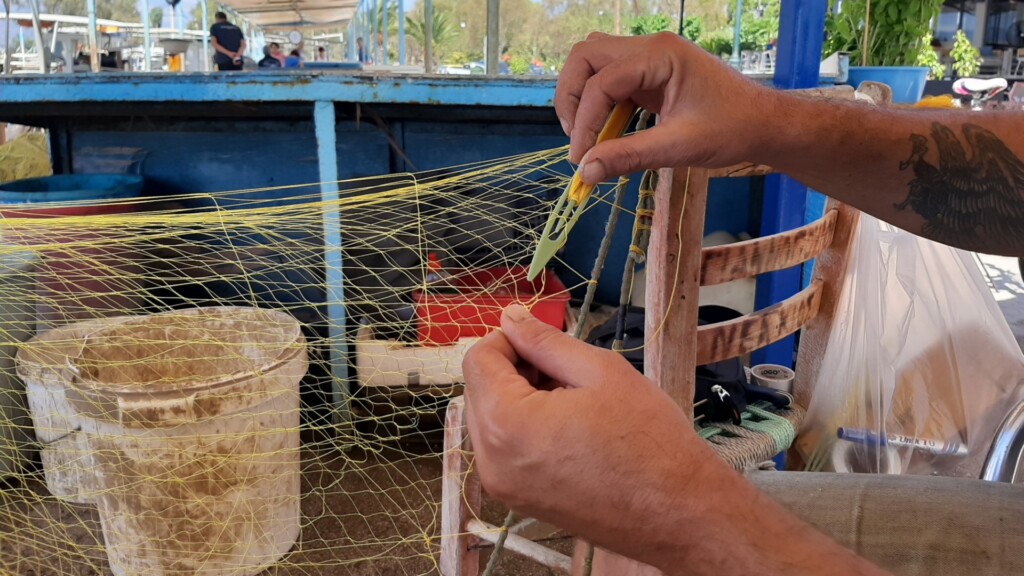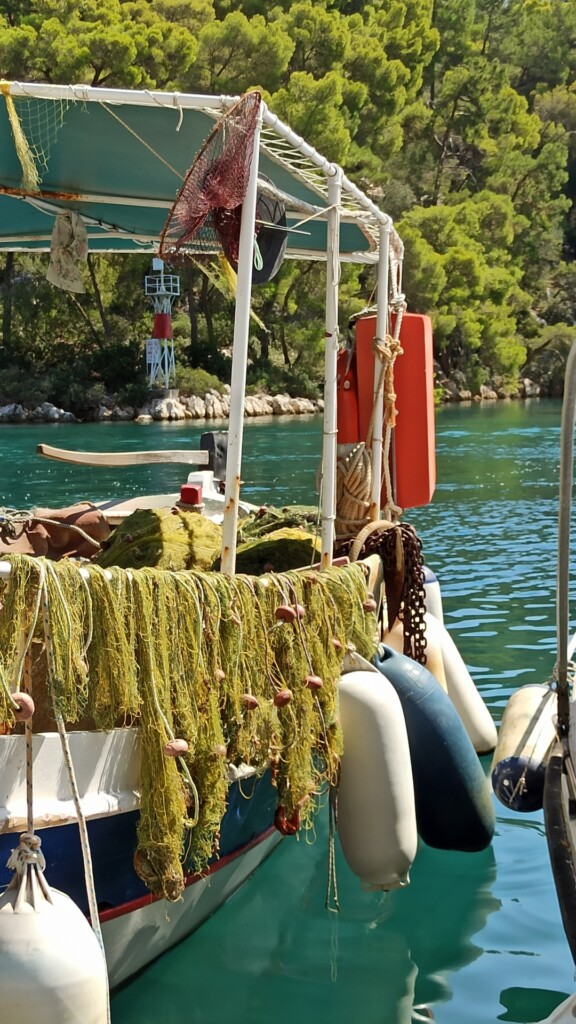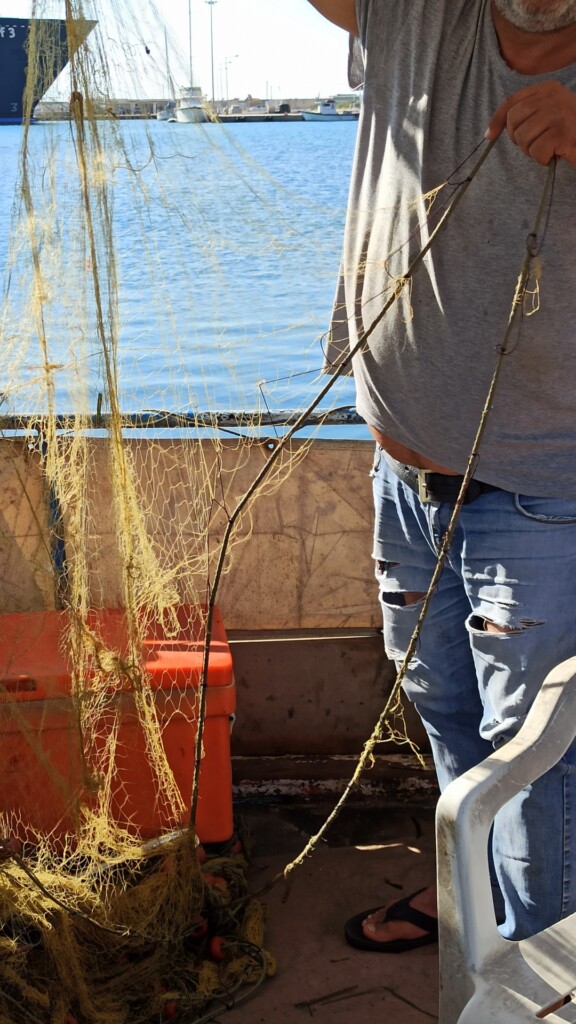How to ensure both a healthy future of small-scale fishing and the life and uniqueness of our seas?

It is 10 o’clock in the morning and Panos is sitting on his boat checking his nets. The catch has been distributed to the local market and now begins the tedious and time-consuming part that requires persistence: The repair of his fishing gear from the damage caused by the dolphins during the previous day’s fishing. He explains the challenges of the job: “Interaction [with marine species] is something that cannot be easily avoided; we are the ones entering their environment and yet I frequently come back empty-handed; the fish catches have significantly decreased, and the attacks worsen the situation.”
In a desperate attempt to restrict damage and catch-loss, fishermen are trying to adapt by constantly changing fishing grounds, so as not to meet marine species or by quickly picking up their gear to reduce interactions. The repair of nets requires time, effort and expenses. If the damage is not too large, they repair it, knowing that it is only a matter of time before it is destroyed again or eventually is rendered completely useless.
The relationship between small-scale fishermen and the unique marine species of the Aegean and Ionian seas is full of challenges for both sides.


The truth is that this is a difficult equation, as fishermen see their income being reduced and gear being damaged by marine megafauna species such as dolphins, sea turtles, and monk seals in their attempt to grab fish from the nets and the long lines. On the other hand, these species are, among others, frequently injured or die by getting trapped in fishing gear or even by vengeful acts. These unique and rare species play a crucial role in the marine environment and in ensuring the good condition of the seas, to everyone’s benefit, this is the reason for them being designated as protected throughout the Mediterranean region.
The frequency of damage that fishermen suffer regarding their gear adds significant weight to the problems encountered by the small-scale fishing sector in Greece, as in other parts of the Mediterranean. Combined with the deterioration of the seas due to marine litter, the strong decline of fish stocks, the rise in fuel and gear prices, as well as the maintenance of vessels, the cost of the profession has increased considerably, while the fishermen’s income has decreased. Fishermen spend their whole lives at sea, but they are aware that the uncertain future of fishing discourages the younger generation from taking over this profession that faces such important pressures.
“There have always been damages, but there was never support.” The frustration for the state’s inaction, as the fishermen call this absence of financial support, is strong and the reference to other international economic support mechanisms – to compensate for the loss of income from the attacks of marine mammals – is inevitable.
How, then, can we harmonize this relationship and ensure both a healthy future of small-scale fishing and the life and uniqueness of our seas?
For 4 months, starting from July 2020 and in the middle of the COVID-19 pandemic, the field teams of WWF Greece – along with the other field teams of the project partners – visited up to 230 ports in Attica, the Peloponnese, West Greece, South Euboea, the Saronic Gulf, the Cyclades, and the Ionian Islands. For data collection, 500 interviews were carried out to fishermen, and the damages and financial loss caused by the destruction of fishing gear and catches by marine species were recorded.
What are the next steps of this important research effort? At the beginning of 2021 and until the end of the year, the teams are back in the field performing onboard sampling in fishing boats in selected hotspot areas in order to carry out a more detailed research and even a more meaningful contact with the affected fishing communities across the country. These results will ultimately contribute to estimating the economic losses and the level of pressure on marine species in Greece.



